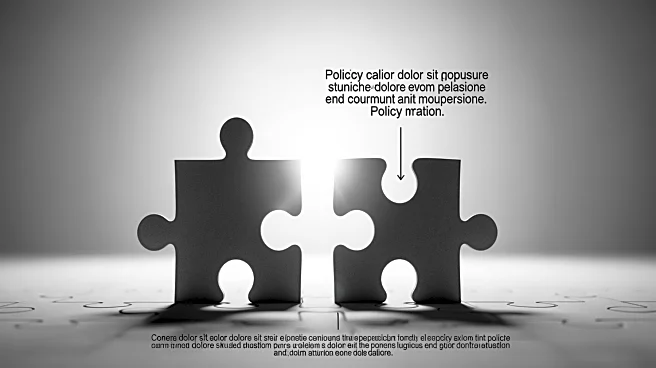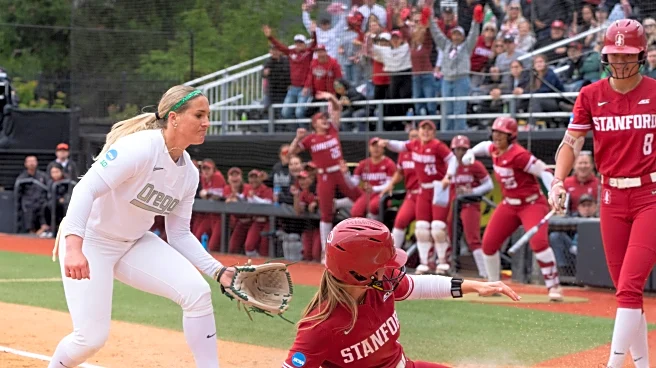What's Happening?
The UK Home Office is exploring Denmark's immigration policies as a model for reforming its own system, particularly concerning family reunions for refugees. Denmark's approach includes strict conditions
such as age requirements, employment status, and language proficiency for family reunification. The UK suspended new applications under its Refugee Family Reunion scheme in September, pending new rules. The Home Secretary, Shabana Mahmood, is expected to announce changes inspired by Denmark's policies, aiming to reduce incentives for migration to the UK and facilitate the expulsion of individuals without legal residency rights.
Why It's Important?
The potential adoption of Denmark's immigration policies by the UK could significantly impact refugee families seeking reunification. Stricter rules may limit the ability of refugees to bring family members to the UK, affecting their integration and stability. Politically, this move could align the UK with more conservative immigration practices, possibly influencing public opinion and voter behavior. It may also affect the UK's relationship with the European Union and its stance on human rights conventions, as Denmark's policies have been criticized for being discriminatory.
What's Next?
The UK Home Office is expected to finalize and announce new immigration rules later this month. The changes could lead to political debates within the UK, especially among Labour Party members who are divided on adopting stricter policies. The impact on refugee communities and potential legal challenges could arise, particularly concerning human rights implications. The UK may also engage in discussions with Denmark to further understand the effects of their policies and explore collaborative approaches to immigration reform.
Beyond the Headlines
Denmark's immigration policies have sparked controversy due to their perceived discriminatory nature, particularly regarding 'parallel societies' and forced marriages. The UK may face similar ethical and legal challenges if it adopts these policies. The broader implications could include shifts in societal attitudes towards refugees and immigrants, potentially leading to increased polarization and debates on national identity and integration.










